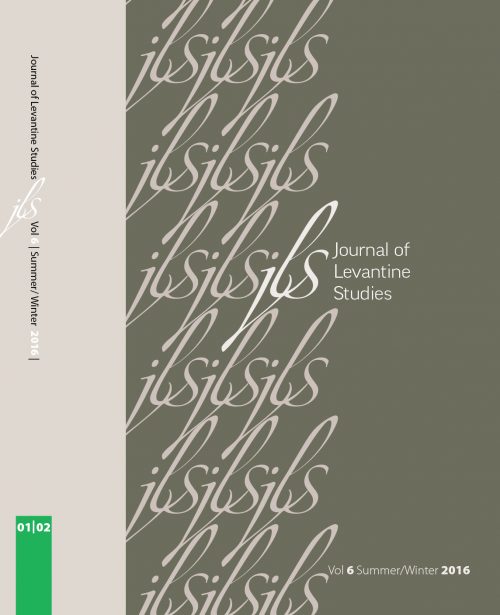-
Add to cartQuick view
Just Like Democracy: Ethnography of Realpolitik in a City of Immigrants
Free!The goal of this paper is to open a new space for understanding political culture “after orientalism,” in polycultural, liberal societies. Relying on three years of ethnographic research (2001–04) at the Likud party chapter in the immigrant city of Ashdod, I present an ethnography of citizenship in action. I argue that at the point where citizenship as an ideal type meets immigrants from developing countries, people mimic and utilize citizenship as a way to support their social mobility. Ideology becomes ID-ology and stands in the center of a new political culture that is neither Occidental nor Oriental.
This new culture of citizenship is formed in three stages: first, the immigrants adopt and approve the Occidental perception of citizenship that fits the Occidental imagination of citizenship; second, the Likud party members distinguish between form and content, loading the “appropriate” definition of citizenship with new content and new ways of interpretation that promote their purpose of socially mobilizing themselves and taking over positions of power; and third, new political cultures of citizenship occupy the city hall. The new citizenship resembles Occidental citizenship, but uses a different toolbox for power accumulation and new methods of interpretation.Add to cartQuick view -
Add to cartQuick view
Manuel de Gama de Pádua’s Political Networks: Service, Subversion, and the Disruption of the Portuguese Inquisition
Free!Between 1674 and 1681, the activities of the Portuguese Inquisition were suspended by papal order. But how was it possible that this mighty institution, built by Catholic elites for religious and social discipline and political control, could be so comprehensively disrupted? This article argues that a key factor in motivating this break in Inquisitorial activity was New Christian political activism, and it seeks to explore what “politics” might have meant for such men, in a society that allowed this and other marginal groups no political role. It suggests that the financial and structural needs of the Crown, committed to empire building and pressured by a continuous war for survival during the Portuguese Restoration and subsequent war with Spain (1640–1668), brought a small group of entrepreneurs to the heart of the state. The article also explores the manner in which one member of this group used this influence for political ends. It seeks to offer new insights into this sort of political activity by viewing it from a cross-cultural perspective, rather than solely from a New Christian ethnic or religious standpoint. It will emphasize mechanisms of coexistence, trust, and cooperation and consider politics as not only an activity of the elites but also as something in which those who were repressed or marginalized engaged. This article forms a part of a wider study of early modern politics, trade, and religion viewed through the prism of the period during which the Portuguese Inquisition was suspended. I will explore the role of one entrepreneur living in Lisbon who was involved in the suspension. This man, Manuel da Gama de Pádua, used the skills, strategies, and connections he had gained in cross-cultural trade as a tool to bring about political change, acting as procurator, or legal representative, of the New Christian community.
Add to cartQuick view -
Add to cartQuick view
The Portuguese Jews in Amsterdam and the Language of Liberty
Free!The exceptional freedoms granted to the Portuguese Jews who began settling in the Netherlands at the very end of the sixteenth century are well known, not only to scholars but to the wider educated public. This article addresses a development scholars have not, however, examined: how Portuguese Jews in the Netherlands came to grasp their new freedoms as an expression of universal political values (rather than mere largesse), and—most significantly—to identify with those values. This requires understanding the essentially religious and ethnocentric meaning of “freedom” in traditional Jewish discourse, where it is presented not as a good in itself but as an instrumental good, in that it facilitated the Jewish people’s proper service of God. Members of the communal elite who had immigrated from Portugal and Spain would have been familiar with the terms liberdade and libertad as abstractions of Iberian political philosophy with no practical significance. But in Amsterdam they would have become familiar with an idea of liberty as a universal right in matters of conscience that pertained to all subjects of a realm, and with an early form of civil religion that embedded the concept of liberty in a uniquely Dutch religiopolitical discourse. A close look at texts generated by Portuguese Jews in seventeenth-century Amsterdam reveals how members of the communal elite came to embrace (at least publicly) a concept of liberty in its universal political meaning, conflating it with a traditional Jewish narrative in a way that dovetailed with the emerging Dutch national narrative.
Add to cartQuick view
- Home
- About JLS
- Issues
- Vol. 9 No. 1 | Summer 2019
- Vol 8 No 2 Winter 2018
- Vol. 8, No. 1: Summer 2018
- Vol. 7, No. 2: Winter 2017
- Vol. 7, 1: Summer 2017
- Vol. 6, Summer/Winter 2016
- Vol. 5, No. 2 Winter 2015
- Vol. 5, No. 1 Summer 2015
- Vol. 4, No. 2 Winter 2014
- Vol. 4, No. 1 Summer 2014
- Vol. 3, No. 2 Winter 2013
- Vol. 3, No. 1 Summer 2013
- Vol. 2, No. 2 Winter 2012
- Vol. 2, No. 1 Summer 2012
- Vol. 1, No. 2 Winter 2011
- Vol. 1, No. 1 Summer 2011
- Blog
- dock-uments
- Subscribe
- Submit
- Contact


